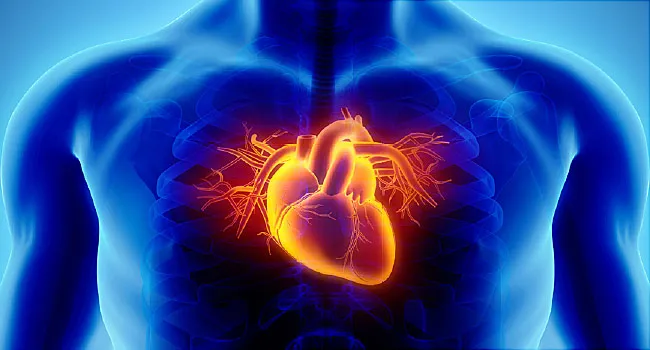
It’s an age-old belief that low-fat diets are good for you, especially if you’re obese or have prevalent heart conditions. However, modern medical science has challenged this belief as more and more reputed studies publish contradictory findings. Read on to learn why low-fat weight-loss diets may not be a very good idea.
Low-Fat Diets: How Low is ‘Low’?
According to the National Institute of Nutrition, 20% to 30% of the total energy requirements of an individual should come from dietary fats. However, individuals suffering from heart conditions and obesity are often advised to lower their fat intake to as low as 15%-20% of their total energy intake. Some even go as low as 10%.

Your Body Needs Fat!
Fats are as essential to your diet as proteins or carbohydrates. They are responsible for a wide range of physiological functions. These include long-term energy storage, thermal insulation, metabolic signalling, and even the regulation of inflammation. Your body needs fats to process many vitamins, such as vitamins A, D, E, and K. There are two types of fats we can consume. They are the “good” fats and the “bad” fats.
Monounsaturated fats and polyunsaturated fats are good for your health. You should include these in your diet. They can actually help you reduce your blood cholesterol levels. They also lower your chances of developing heart disease. Many critically important metabolic pathways in your body depend on polyunsaturated fats for their proper functioning.
Click here to know more about "good and bad fats".
Some Monumental Studies in this Field
The Women’s Health Initiative Randomized Controlled Dietary Modification Trial
Over 48,000 postmenopausal women aged between 50 and 79 years, belonging to diverse backgrounds and ethnicities, participated in the study. The study was conducted for more than 8 years to see whether low-fat diets actually led to long-term health benefits.
The study concluded that the shift to a low-fat diet had not reduced the risk of debilitating heart diseases, colorectal cancer, or even invasive breast cancer in postmenopausal women.

Know about menopause and its symptoms here!
The Multiple Risk Factor Intervention Trial
Multiple Risk Factor Intervention Trial was another massive study that involved 12,866 men who were at high risk of having a heart attack. These men were instructed to quit smoking, shift to a low-fat diet, and increase their consumption of vegetable oils (good fats).

By the end of this study, it was apparent that the low-fat diet and lifestyle changes did not result in any significant difference in heart attack risks.
The PREDIMED Study
The PREDIMED study attempted to test how effectively a low-fat diet reduced cardiovascular disease risk as compared to normal Mediterranean diets. In this study, the higher-fat diet group demonstrated a substantial reduction in the risk of major cardiovascular diseases compared to the low-fat diet group.
This study demonstrated that consuming healthy fats (a characteristic of Mediterranean diets) is far more beneficial in preventing cardiovascular disease in comparison to low-fat diets. Other studies also suggest that Mediterranean diets reduce the risk of a variety of life-threatening conditions, including heart disease.

Essential Fatty Acids and Your Brain
Essential fatty acids are a type of “good” fat that your body requires you to supplement via your diet. Your brain requires essential fatty acids for its health and well-being. In the past decade, studies have linked higher essential fatty acid consumption to a lower relative risk of dementia, depression, and even psychotic disorders such as schizophrenia! Foods low in fat easily starve your brain of much-needed essential fatty acids and cause a variety of complications.

Less Fat Generally Means More Carbohydrate
Often, the reduction of dietary fats in a low-fat diet means an increase in carbohydrates in its place. Excess carbohydrates convert to fats for efficient energy storage. The human body primarily synthesizes saturated fatty acids from excess carbohydrates, although some monounsaturated fatty acids are also formed.

Therefore, replacing dietary fats with carbohydrates without reducing the net calorie intake does not produce any benefits at all.
Click here to learn more about carbohydrates!
Low-Fat Weight Loss Diet Lacks Long-term Effects
Although low-fat diets produce weight loss, studies have shown that weight regain is the usual long-term effect of such diet plans. Some of the biological responses brought about by such diets are very similar to how our body responds to starvation. This is one of the reasons why low-fat diets often fail in the long term.
Several scientists have also favored a low-carbohydrate diet over a low-fat weight-loss diet, claiming the former to be more effective than the latter in almost all aspects!
Conclusion
The scientific community has still reached no common consensus regarding the effectiveness of low-fat diets. Although this article highlights the negative and debated aspects, it would be incorrect to assume that these diets are completely devoid of any positive or beneficial properties.
Disclaimer: The information and other content provided in this blog, or in any linked materials, are not intended and should not be construed as medical advice, nor is the information a substitute for professional medical expertise or treatment. If you or any other person has a medical concern, you should consult with your healthcare provider.
Reference
- https://www.webmd.com/diet/low-fat-diet
- https://www.uchicagomedicine.org/forefront/gastrointestinal-articles/2023/july/which-are-healthier-low-fat-or-full-fat-foods
- https://www.drugs.com/cg/low-fat-diet.html
- https://www.mensxp.com/health/weight-loss/36287-low-fat-diets-will-not-help-you-lose-weight-this-will.html


.png)


